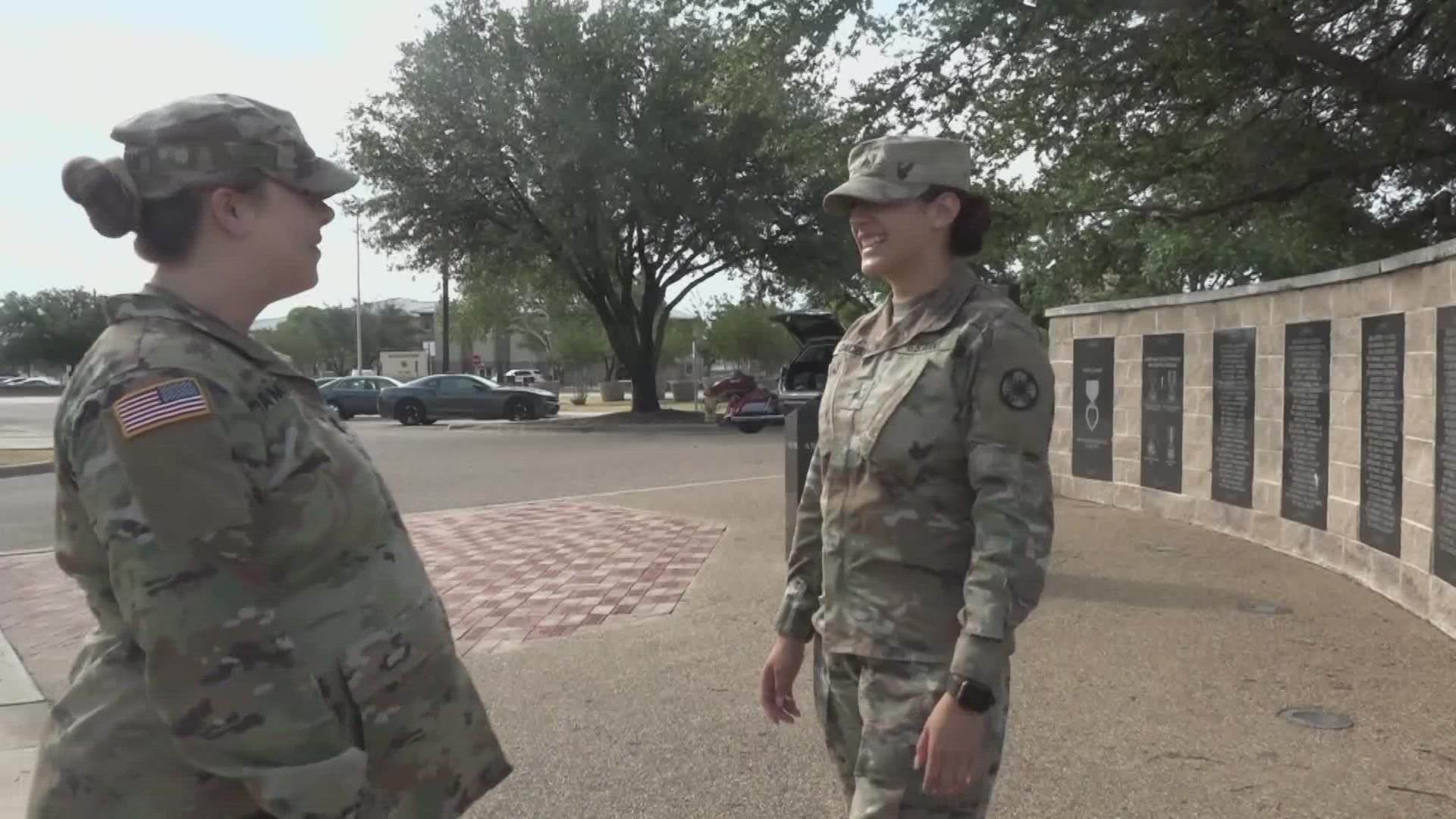FORT HOOD, Texas — Many moms and dads in Central Texas can agree that parenthood is no easy task, especially when you have a job that requires you to put mission first.
First Lieutenant Francesca Hamilton knew early on that she wanted to join the military.
"I always wanted to serve in some capacity,” said Hamilton. “When I got into the United States Military Academy, I decided that being an officer will be a good fit for me."
After eight years in the Army, the Fort Hood solider and her husband are now on a different mission, to become first time parents.
"It happened at a good time in our careers,” said Hamilton. “We both had just got back from deployment and out we were pregnant. It was a few months after our wedding. “It was just a blessing."
In January, the U.S. Army updated its regulations on pregnancy and parenthood.
Going into effect this year, the Army's Parenthood, Pregnancy and Postpartum Directive updated it regulations, which included expanding postpartum operational and training deferments, extending exemptions for physical fitness testing, and the army body composition program, as well as standardizing convalescent leave in cases of pregnancy loss, allowing select professional military education attendance while pregnant, creating stabilization while undergoing fertility treatments, and increasing family care plan flexibility.
Hamilton said being a soldier-mother is rewarding but it has its challenges.
"Some specific challenges with being in the military is obviously physical training in the morning,” said Hamilton. “I think the way the news regulations state and how the army is able to do post-partum program for new moms and work around their schedule to make sure mommy and baby are taken care of is huge."
According to the U.S Army Public Affairs, these changes affect over 400,000 army parents, including 29,000 single father soldiers, who outnumber single mother soldiers by a 3-to-1 ratio.
Army Sergeant Kayla Caicedo, executive assistant for Command Sergeant Major James A. LaFratta of the 13th Expeditionary Sustainment Command, works with Hamilton every day. She said leaders in their unit embrace motherhood.
"It has been an amazing experience. They are amazing leaders, people who really care about soldiers, their families," said Caicedo.
Throughout her pregnancy Caicedo said Hamilton is a great soldier and leader.
I want to be like Hamilton. She has a great attitude every day,” said Caicedo. “She cares about soldiers, and she's always taking care of people and making sure we are good. It doesn't matter about your rank, everybody is taken care of."
Hamilton is due this fall. She said she is grateful for her command and the U.S. Army.
"I’ve had nothing but support and excitement for my new baby and from my husband as well," said Hamilton.
Another change the Army made was not requiring pregnant mothers to wear dress uniforms until 12 months post-partum. Hamilton said she and her husband are expecting a baby boy. He is going to be the first grandchild on both sides of the family.

